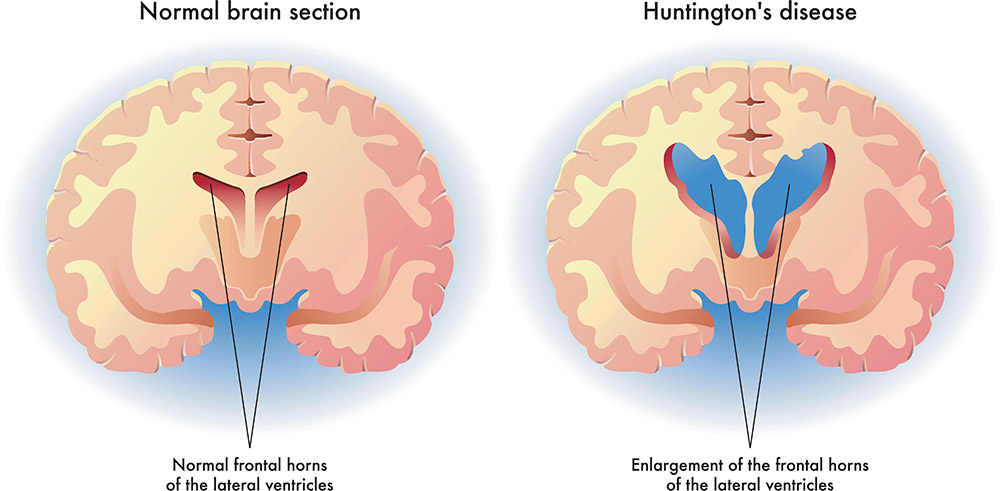- What is the incidence of Huntington Disease in India? Which age group / gender is the most affected? What are the future projections? How serious a health challenge does it pose to India?
It is difficult to tell how common HD is in a population. In Western countries it’s estimated that about five to seven people per 100,000 are affected by HD. There are a few isolated populations in Western Europe where HD is unusually common. A very high concentration of HD has also been found in the Lake Maracaibo region of Venezuela where the prevalence of HD is about 700 per 100,000. In Indian context, it can be speculated that between 20,000-40,000 people, are suspected to be affected with HD in Indian population, and more than 0.2 million may be at risk. It is suggested that the prevalence of HD in India should not be underestimated.
- What long term trends are you seeing for Huntington disease in India in terms of incidence / demography / age group / gender / geographies?\
Huntington’s disease is a major concern, as there is a concept of “Anticipation”, that means the next generation develop symptoms earlier than the previous generations leading affection in most productive age groups. No gender / age group is immune. Albeit more common seen in western populations, its prevalent in India also. Mostly seen between 40-60 years of age, but about 5-10% of cases occur at younger age (i.e., less than 20 years at onset).
- What are the early symptoms of Huntington’s disease?
Huntington’s disease usually causes movement, cognitive and psychiatric disturbances with a wide spectrum of signs and symptoms. Which symptoms appear first varies greatly among affected people. During the course of the disease, some disorders appear to be more dominant or have a greater effect on functional ability. The early symptoms could be behavioral (like depression, anxiety, suicidal thoughts) or Movement disorders (like restlessness movements) or cognitive (like difficulty in organizing, loss of flexibility, impulsive, etc). As the disease progresses, symptoms become more obvious – including uncontrollable jerky movements and drastic personality changes and by Late states, they become completely dependent for all activities.
- What is the mortality and morbidity associated with Huntington’s disease?
Huntington’s disease is a progressive neurodegenerative disorder which over a period of time affects a person’s normal functioning and leading to complete dependency. The life expectancy after the clinical onset of symptoms varies from 10-25+ years.
- How is Huntington’s diagnosed?
Huntington’s disease is diagnosed by a blood test, wherein specific genetic mutations are looked for. You can also consult a Huntington disease specialist to get more insight and options about diagnosis.
- Is the Huntington disease genetic?
Yes, Huntington’s Disease (HD) is caused by a defective gene which results in the gradual destruction of neurons (brain cells), particularly in those parts of the brain known as the basal ganglia and the cerebral cortex. The defective gene can be passed from one generation to the next. If a parent has the gene, each child has a 50/50 chance of either inheriting or escaping it.
- What are the various treatment options for Huntington’s disease?
Currently treatment for Huntington’s disease is symptomatic. It means, the treatment is directed towards what symptoms the patient is showing like behavioral, movement disorders, cognitive etc. There is no specific curative treatment available till date.
- What are the high-risk characteristics that make individuals vulnerable to Huntington’s disease?
A strong family history is one of the high risk for development of Huntington’s disease. However, any young person with behavioral and movement disorders (more specifically restlessness type movements) would be considered for Huntington’s disease.
- What are the main challenges doctors face in treating Huntington’s disease?
As this is a progressive disorder, the main challenge is the burden of symptoms developing over the time. The combination of behavioral, cognitive and movement disorders add significant drain to the families and care givers.
- Do you have any data / insights specific to Karnataka?
No specific data is available in relation to this. However, there are few publications which have indicated of prevalence of Huntington’s disease in South India, more so in Karnataka.
- What precautions / lifestyle habits / prevention would you suggest to avoid Huntington’s?
There is nothing in specific to avoid Huntington’s disease. However, a good social life, and physical life style can help to cope with it.
- Is there any particular therapy for Huntington disease? What is it and what treatment solution does it offer? Is it available in India? Why has there been a huge void in the country regarding this treatment?
Lot of newer treatment modalities are being tried in trial phases for Huntington’s disease. Off late a newer genetic based treatment modalities are being tried where in the end product accumulation occurring in this disorder can be reduced. There is significant hope that these treatment approach can help in possible slowing down, stopping or in best case scenario reversal of the process. However, time can only give a answer, whether the can with stand the postulation. Currently the studies are primarily occurring in European and American continents.

